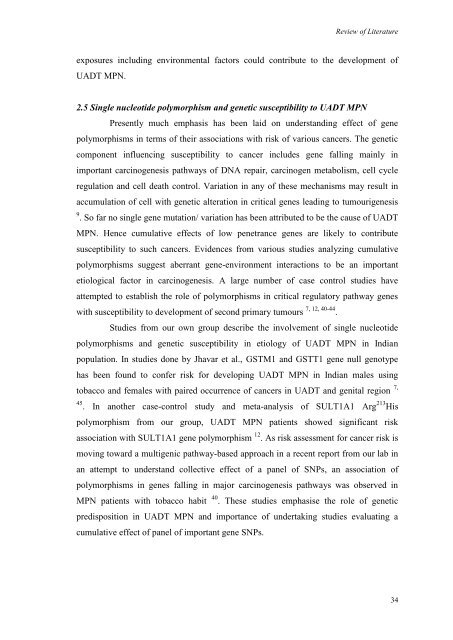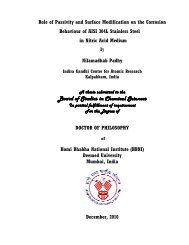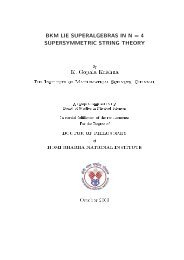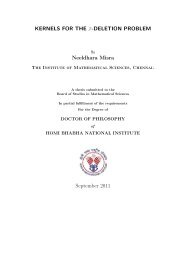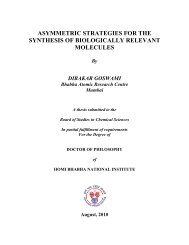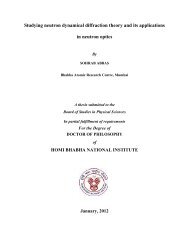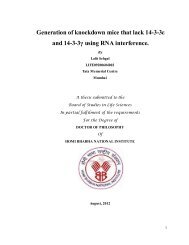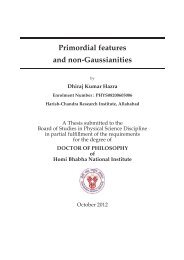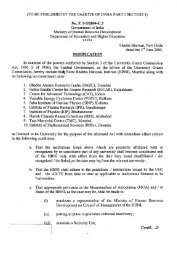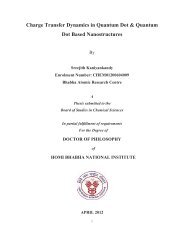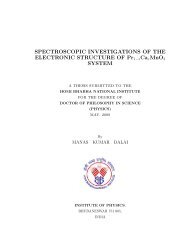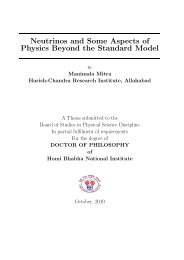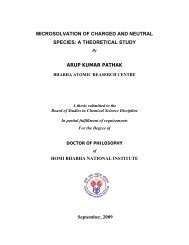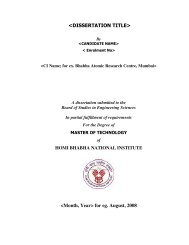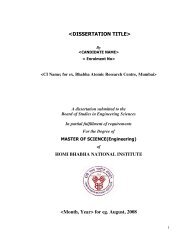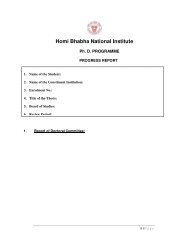LIFE09200604007 Tabish - Homi Bhabha National Institute
LIFE09200604007 Tabish - Homi Bhabha National Institute
LIFE09200604007 Tabish - Homi Bhabha National Institute
Create successful ePaper yourself
Turn your PDF publications into a flip-book with our unique Google optimized e-Paper software.
Review of Literature<br />
exposures including environmental factors could contribute to the development of<br />
UADT MPN.<br />
2.5 Single nucleotide polymorphism and genetic susceptibility to UADT MPN<br />
Presently much emphasis has been laid on understanding effect of gene<br />
polymorphisms in terms of their associations with risk of various cancers. The genetic<br />
component influencing susceptibility to cancer includes gene falling mainly in<br />
important carcinogenesis pathways of DNA repair, carcinogen metabolism, cell cycle<br />
regulation and cell death control. Variation in any of these mechanisms may result in<br />
accumulation of cell with genetic alteration in critical genes leading to tumourigenesis<br />
9 . So far no single gene mutation/ variation has been attributed to be the cause of UADT<br />
MPN. Hence cumulative effects of low penetrance genes are likely to contribute<br />
susceptibility to such cancers. Evidences from various studies analyzing cumulative<br />
polymorphisms suggest aberrant gene-environment interactions to be an important<br />
etiological factor in carcinogenesis. A large number of case control studies have<br />
attempted to establish the role of polymorphisms in critical regulatory pathway genes<br />
with susceptibility to development of second primary tumours 7, 12, 40-44 .<br />
Studies from our own group describe the involvement of single nucleotide<br />
polymorphisms and genetic susceptibility in etiology of UADT MPN in Indian<br />
population. In studies done by Jhavar et al., GSTM1 and GSTT1 gene null genotype<br />
has been found to confer risk for developing UADT MPN in Indian males using<br />
tobacco and females with paired occurrence of cancers in UADT and genital region 7,<br />
45 . In another case-control study and meta-analysis of SULT1A1 Arg 213 His<br />
polymorphism from our group, UADT MPN patients showed significant risk<br />
association with SULT1A1 gene polymorphism 12 . As risk assessment for cancer risk is<br />
moving toward a multigenic pathway-based approach in a recent report from our lab in<br />
an attempt to understand collective effect of a panel of SNPs, an association of<br />
polymorphisms in genes falling in major carcinogenesis pathways was observed in<br />
MPN patients with tobacco habit 40 . These studies emphasise the role of genetic<br />
predisposition in UADT MPN and importance of undertaking studies evaluating a<br />
cumulative effect of panel of important gene SNPs.<br />
34


